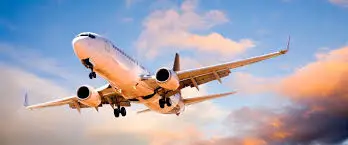‘Arrive at airports 3 hours before departure’: India tightens air security amid border tensions with Pakistan

May 9, 2025 — New Delhi:
India has stepped up security at airports across the country due to rising tensions with Pakistan. Flyers must now arrive at least three hours before departure, even for domestic flights. The Ministry of Civil Aviation and the Bureau of Civil Aviation Security (BCAS) issued this advisory on Thursday following intelligence alerts.
Officials say this is a precautionary move aimed at ensuring the safety of passengers and airport infrastructure. Although no specific threat has been made public, the government is acting on high-level alerts from national intelligence agencies.
Major Airports on High Alert
Security has been strengthened at all major airports. Airports in Delhi, Mumbai, Hyderabad, Kolkata, and Bengaluru have seen a significant increase in surveillance. States sharing a border with Pakistan—Punjab, Rajasthan, Gujarat, and Jammu & Kashmir—are on heightened alert.
The Central Industrial Security Force (CISF) has deployed additional personnel at key points. Officers are conducting more thorough baggage checks and screening passengers using handheld detectors and advanced scanning systems.
Vehicle checks at airport entrances are now routine. Police and security teams are also patrolling terminals more frequently. Inside airports, surveillance teams are using AI-enabled CCTV cameras to monitor real-time activity.
Flyers Face Delays, Must Plan Ahead
Air travelers should factor in longer wait times due to these new protocols. Security checks may take longer, especially during peak hours. Airlines warn that late arrivals could lead to missed flights, even if the tickets are confirmed.
Passengers are urged to carry valid ID cards, avoid restricted items, and check in online when possible. Airport authorities have advised flyers to follow airline notifications closely for updates.
Many travelers expressed mixed reactions. Some supported the security measures, while others were frustrated by the lack of early communication.
“I got an alert from my airline just a few hours before the flight. It’s stressful, but I’d rather be safe,” said Ramesh Kumar, a passenger flying from Delhi.
Military Movement Along the Border Raises Concerns
These aviation measures follow reports of rising military activity along the Line of Control (LoC). Officials say Pakistan has increased troop deployment in some border sectors. Indian defense forces have responded with their own strategic movements.
Cross-border firing has also intensified in recent days. Though casualties remain limited, both countries have accused each other of violating ceasefire agreements.
The Indian government has not made any official statement linking airport security changes to these events. However, defense analysts believe the timing shows clear concern about possible cross-border threats.
Retired Air Marshal Ajay Mehra told NewsCircuit, “India is taking a proactive approach. These steps show a high level of preparedness without creating panic.”
Political Response and Public Sentiment
The move has drawn attention from political leaders as well. The opposition has demanded a special session in Parliament to discuss national security. Some lawmakers are calling for transparency on the threat level.
“We support the security measures, but the public must be informed. Panic spreads when people feel left in the dark,” said MP Sunita Yadav.
Meanwhile, civil aviation officials held a press briefing urging citizens to remain calm. They emphasized that the situation remains under control and that the government is taking preventive action.
Public opinion seems divided. Some appreciate the government’s cautious stance, while others worry about the strain on travel and logistics.
Airlines Coordinate with Authorities
Airlines are working closely with CISF and BCAS to ensure smooth operations. Ground staff have been instructed to report any suspicious behavior immediately. Extra counters have opened for check-in and baggage drop to help manage increased footfall.
SpiceJet and Indigo issued advisories on their social media handles. Both airlines recommended passengers arrive at least three hours early for domestic and four hours early for international flights.
Some airports, including Delhi’s IGI and Mumbai’s Chhatrapati Shivaji, have set up additional help desks. Staff members are guiding elderly passengers, people with disabilities, and those unfamiliar with the new protocols.
Preparedness Without Panic
Security experts believe India is acting wisely by strengthening aviation security without causing public fear. Past incidents, including the 1999 IC-814 hijacking and post-Uri terror threats, have shaped India’s aviation security strategy.
“This is not just about reacting to a current crisis,” said security analyst Kavita Joshi. “It’s about building resilience and showing we’re ready for any situation.”
Airports have faced increasing cyber threats and physical risks in recent years. With rising regional tensions, authorities want to ensure no weak points exist in critical infrastructure like aviation.
Conclusion: Stay Alert, Not Alarmed
India’s decision to tighten airport security reflects a broader national effort to stay ahead of potential threats. While passengers may face temporary inconvenience, these steps aim to protect lives and public assets.
Travelers should stay informed, follow instructions, and allow extra time for airport procedures. As the border situation evolves, officials may update guidelines based on new intelligence.






